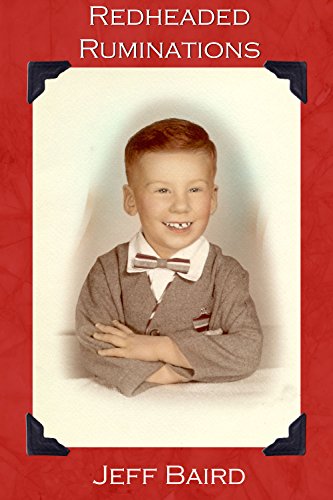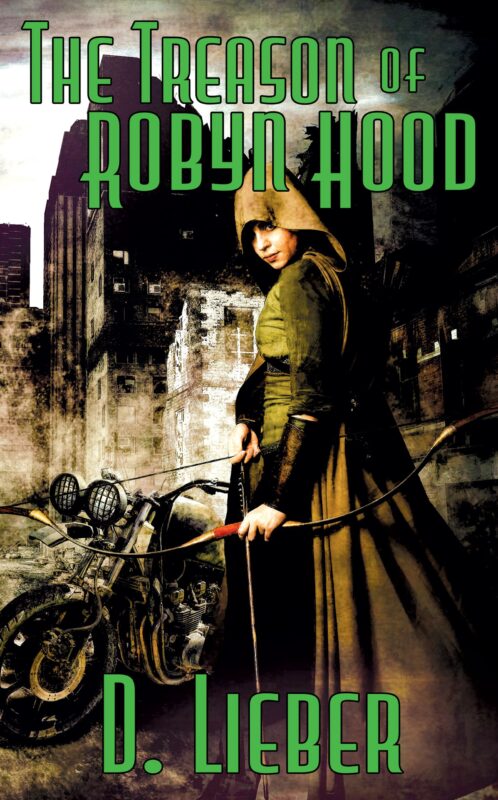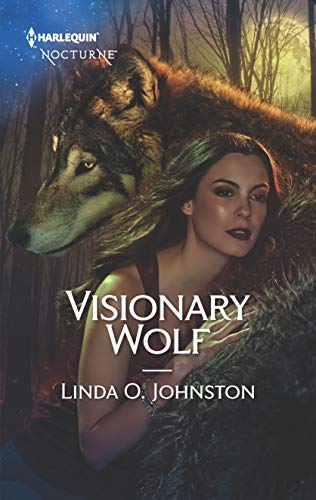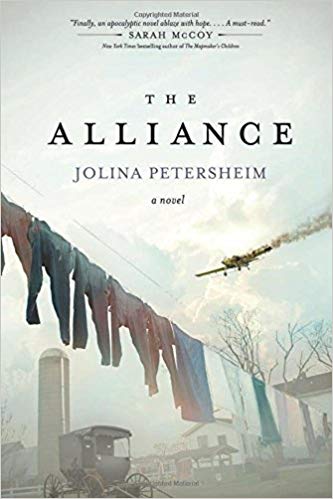Advice to Myself as a Newbie Author
July 22, 2009 by A Slice of Orange in category Advice to Myself as a Newbie Author by Shauna Roberts tagged as Advice to Myself as a Newbie Author, Tanya Hansonby Shauna Roberts
http://www.ShaunaRoberts.com
http://ShaunaRoberts.blogspot.com
Today’s Guest: Tanya Hanson
Tanya Hanson enjoys life near the beach with her firefighter husband. They’re busy getting ready for their daughter’s wedding this summer, and their son and daughter-in-law have given them a totally adorable two-year-old grandson—the ring bearer. Her newest book is Marrying Minda (Wild Rose Press), a Western tale of a mail-order bride and the wrong groom.
If you could travel back in time to before you were first published, what advice would you give yourself?
 If I could go back in time to before I was first published . . . I’d definitely not wait until my kids went off to college to write and submit. Saying I was “too busy†was just an excuse and, I suppose, a fear of failure.
If I could go back in time to before I was first published . . . I’d definitely not wait until my kids went off to college to write and submit. Saying I was “too busy†was just an excuse and, I suppose, a fear of failure.
Some other things I learned:
1. Check your pen name early on. I didn’t and now share cyberspace with a porn star of the same name.
2. Remember that nobody dies from rejection. Gnash your teeth for a day, then move on.
3. Write what you love, not what’s trendy at the moment. If you don’t, writing’s a chore and what’s the point?
4. Enter contests. It’s such a feel-good thing when you do well, and the comments are helpful if you don’t. It might open some doors. And practically speaking, having to follow directions and prepare a perfect manuscript is great training. My current release, Marrying Minda, placed first in two RWA chapter fiction contests, and Outlaw Bride is a finalist in the Romance through the Ages Contest sponsored by the RWA online chapter Hearts Through History.
5. Ease up on e-loops, mySpace, Facebook, and twitter. All that can really get in the way of writing time. My editor encourages two full hours of writing before going online, although I must confess I’m not there yet.
6. Read! I got a recumbent bike both for exercise and for a dedicated time for reading. Reading good literature helps with such things as varying sentence beginnings and structures, increasing vocabulary, and improving your own grammar skills when you see our language done well. Can you tell I taught high school English forever?
 7. Take advantage of workshops and online classes. The book I’m finishing now took an unexpected turn thanks to a plotting class I recently took.
7. Take advantage of workshops and online classes. The book I’m finishing now took an unexpected turn thanks to a plotting class I recently took.
8. And last but not least, forget about your mom and Great Aunt Edna reading your books when you write love scenes.
✥✥✥✥✥
To learn more about Tanya Hanson, please visit her Web page at http://www.TanyaHanson.com or read her blog posts at http://www.petticoatsandpistols.com. You can order Marrying Minda online at Amazon.com and the Wild Rose Press.
3 0 Read moreAdvice to Myself as a Newbie Author
June 22, 2009 by A Slice of Orange in category Advice to Myself as a Newbie Author by Shauna Roberts tagged as Advice to Myself as a Newbie Author, DeAnna Cameronby Shauna Roberts
http://ShaunaRoberts.blogspot.com
Today’s Guest: Deanna Cameron
If you could travel back in time to before you were first published, what advice would you give yourself?
 The first thing I’d tell myself is this: 1. There’s no silver bullet to writing a good novel. I’m sure this is obvious to most writers starting out, but it was a surprisingly difficult lesson for me to learn because I’m the kind of person who thinks you can do just about anything if you learn the right rules.
The first thing I’d tell myself is this: 1. There’s no silver bullet to writing a good novel. I’m sure this is obvious to most writers starting out, but it was a surprisingly difficult lesson for me to learn because I’m the kind of person who thinks you can do just about anything if you learn the right rules.
I love rules. I love organization. I cling to clearly defined goals, and I take intense pleasure in being able to track progress. So when I set my mind to the task of writing a novel, my first and strongest instinct was to search out the set of writing rules I thought would pave the way.
I enrolled in classes, I signed up for workshops, I read craft books, and I attended conferences. I absorbed as much knowledge as possible, assuming it would naturally lead to great writing. Then I’d sit at the keyboard, and I’d wait for the captivating words and an elegantly composed storyline to magically appear beneath my fingertips. And I’d wait. Eventually I’d type something, and inevitably it fell short of the kind of brilliance I was expecting.
I told myself that could only mean one thing: I hadn’t yet found the right rules. So I took more classes, signed up for more workshops, read more books, and attended more conferences. Then I tried again. By then I was so full of rules, I froze at the keyboard. Instead of letting the story flow, I analyzed and overanalyzed every word I wrote. You can imagine the number that did on my creativity.
I would have saved myself a lot of time—and frustration—if I could tell my earlier self that writing is just plain hard work, and there are no rules or shortcuts that will erase that fact. The only way to produce good writing is to write—a lot—and to find your own rhythm and style in the words.
Here are a few other things I’d tell myself:
2. Hard and fast rules don’t exist when it comes to writing fiction. For every rule out there, you can find examples of brilliant stories that break that rule. Look at the classics or scan through the bestsellers, and you’re sure to find these novels break some rule or another. A better goal is to be aware of the rules, but write knowing that you must stay true to your own sense of what works for your story and your characters.
3. Forget the old adage “write what you know.†I’ve found it’s more important to write about what you love, what excites you, or what you’re dying to learn more about. Writing about something that excites you or that is a new discovery for you will naturally elevate your writing. If it’s a topic that is truly brand new to you, however, research it well enough to write about it authoritatively.
 4. Don’t settle for getting your manuscript in reasonably good shape with the belief that an agent and editor will see the potential and help you perfect it. If you’re lucky enough to get interest from an agent and/or an editor, he or she is looking for work that is already polished. Don’t be tempted to send out a manuscript that isn’t ready.
4. Don’t settle for getting your manuscript in reasonably good shape with the belief that an agent and editor will see the potential and help you perfect it. If you’re lucky enough to get interest from an agent and/or an editor, he or she is looking for work that is already polished. Don’t be tempted to send out a manuscript that isn’t ready.
5. Remember why you started writing in the first place. If you’re like me, you began writing because you took pleasure in the act of writing itself. Yet somewhere along the line—after we’ve taken a bunch of classes and workshops and joined critique groups and stumbled through multiple drafts—you might become convinced that getting the story into print is The Most Important Thing. But it isn’t, not really. Building a world with nothing more than words and your imagination is an amazing and tremendously gratifying thing in and of itself, and that should be honored whether it leads to publication or not.
✥✥✥✥✥
To learn more about DeAnna Cameron, please visit her Web page at http://www.DeAnnaCameron.com or her blog at http://DeAnnaCameron.blogspot.com. You can preorder her July 7 release, The Belly Dancer, at your local bookstore or online at Amazon.com, Barnes & Noble, and Borders.
Advice to Myself as a Newbie Author
May 22, 2009 by A Slice of Orange in category Advice to Myself as a Newbie Author by Shauna Roberts tagged as Advice to Myself as a Newbie Author, Jill Marie Landisby Shauna Roberts
http://ShaunaRoberts.blogspot.com
Today’s Guest: Jill Marie Landis
Jill Marie Landis is the author of more than twenty award-winning, best-selling novels. Her books have appeared on the New York Times’ extended list and the USA Today list. She has been an RWA Rita finalist seven times and has won a Rita, the Golden Heart, and a Golden Medallion among other prestigious industry awards. She lives in Hawaii with her husband, and when she’s not hula dancing or sitting on the beach, she’s writing. Her latest release, a single-title Western historical romance, The Accidental Lawman (Steeple Hill), will be released on May 28th.
If you could travel back in time to before you were first published, what advice would you give yourself?
 As a firm believer that I’m always in my right place, I tend to live in the moment and don’t look back, so it’s hard to picture myself giving myself advice on how to do things differently, but hopefully the following will help someone else along the sometimes smooth and sometimes rocky road of publishing.
As a firm believer that I’m always in my right place, I tend to live in the moment and don’t look back, so it’s hard to picture myself giving myself advice on how to do things differently, but hopefully the following will help someone else along the sometimes smooth and sometimes rocky road of publishing.
1. Write faster. Because I was blessed enough to make great advances from the beginning, I was content (notice I say content and not lazy) enough to write only one single-title novel a year. If I had it to do over again, I would write two books a year in two different subgenres (for example, one historical and one contemporary) or one single title and a category, perhaps. After twenty-five years in the business I’ve seen a whole lot of authors come and go and have noticed that it’s not always quality that promotes staying power, but stamina and quantity. The perfect combination is quality and quantity. Making a name for yourself and keeping it out there in front of readers is what counts.
2. If it’s not broke, don’t fix it. Stick to what is working if your books are selling. I wrote eight Western historical romances and they were making all the best-seller lists. After six of them, I wanted to do something different. My editor wanted two more Westerns. I wrote them and thought I’d throw up if I had to hang one more gun on one more cowboy. The books did really, really well and the publisher promotion was great. Foolishly, I ventured into other historical settings, New Orleans and the Caribbean, Africa, pioneers in Kentucky. Sales didn’t slip but they didn’t skyrocket and treading water in the publishing business is not a good thing. Readers want what they have come to expect from you—over and over again. My advice—give it to them. If you get bored, change your name when you try something new.
3. Know when to make the big moves and make them quickly. A very well-known big name author told me very, very early on, “Leave your first publisher when you are on top. They will never see you as anyone but the little author they found.†Me? I was into loyalty. Isn’t that worth something? Isn’t loyalty an honorable trait? To a point. I stayed at my first publishing house for fifteen years. I was well paid. I was fat and happy but never slotted at the top of their list. I watched them “steal†other romance authors from other houses and place them ahead of me. I should have let myself be “stolen†and wooed by another house before it was too late.
4. Know when to change agents. For me, changing agents is the most gut-wrenching, hardest decision I’ve ever had to make in publishing. If you are thinking it’s time to change, it’s probably past time.
5. Learn the business. Face facts. You can do a lot to promote your work, but the bottom line is publisher backing and support. The product is what’s most important. Write the best book each and every time you can so that when your work is promoted and slotted and out in quantities where readers can find it, be sure you are giving them the best you’ve got.
 This next piece of advice is something I’ve always tried to remember. This is for the newbies out there reading this blog:
This next piece of advice is something I’ve always tried to remember. This is for the newbies out there reading this blog:
6. Network, network, network. Make writer friends. Get to know agents and editors, even if they are not ever going to be your agent or editor. The more people you know and who know you personally, the better off you are in the business. Make friends, not enemies. They’ll guard your back and help when you need advice, encouragement, and a shoulder to cry on. True friends will celebrate your successes. Be happy for your fellow writers and not jealous of them. We have an old friend who is an actor on a long-running soap opera. His favorite quote is one to live by: “Be nice to everyone on your way up. You’ll see them again on your way down.â€
✥✥✥✥✥
To learn more about Jill Marie Landis, please visit her Website at http://www.jillmarielandis.com or her blog at http://www.jillmarielandis.com/blog. You can preorder The Accidental Lawman and purchase her July 2008 book, Homecoming (Steeple Hill), at your local bookstore as well as at online bookstores. Click on your favorite bookstore below to go directly to the purchase page.
The Accidental Lawman: Amazon.com, Barnes & Noble, Borders
Homecoming: Amazon.com, Barnes & Noble
5 0 Read moreAdvice to Myself as a Newbie Author
April 22, 2009 by A Slice of Orange in category Advice to Myself as a Newbie Author by Shauna Roberts tagged as Advice to Myself as a Newbie Author, Tricia Mills, Trish Milburnby Shauna Roberts
http://ShaunaRoberts.blogspot.com
Today’s Guest: Trish Milburn
Trish Milburn is an eight-time Golden Heart finalist and two-time winner—once for Romantic Suspense and once for Young Adult. She writes YA as Tricia Mills for Razorbill (Heartbreak River, April 2009) and contemporary romance under her real name for Harlequin American (Her Very Own Family, May 2009). She is a former magazine editor and still puts those editorial skills to use as a freelance copy editor and writer. She has her own blog and is a regular contributor to the Wet Noodle Posse, Romance Bandits, Supernatural, and Harlequin American group blogs.
In what little spare time she has, she enjoys reading, traveling, watching TV and movies, and hiking.
Trish, if you could travel back in time to before you were first published, what advice would you give yourself?
 1. Do not take rejections personally. There were so many times, particularly early on, where they felt personal when they weren’t. I could have saved myself a lot of tears and hurt feelings if I’d had a tougher skin from the beginning.
1. Do not take rejections personally. There were so many times, particularly early on, where they felt personal when they weren’t. I could have saved myself a lot of tears and hurt feelings if I’d had a tougher skin from the beginning.
2. Related to No. 1: Remember, this is a business. Sure, we deal with creative works and we get emotionally invested in our books, but we can’t lose sight of the fact that those books are, in fact, products that we want the publishing companies to take a chance on selling. All our decisions should at some level be made through the prism of good business sense.
3. I live this one, but I think it’s important for all new writers to remember that old saying, “If you can’t say something nice, don’t say anything at all.” Publishing might seem like a big world, but it really isn’t. Editors become agents; agents change agencies; other writers cross your path. Trust me, if you say something negative about an agent, editor, publishing house, or fellow writer, it’ll come back and bite you. I’ve unfortunately seen it happen to people.
 4. Constantly learn. Read writing how-to books (but don’t necessarily absorb them as gospel), other books in the subgenre you want to write, novels in other genres (I like mysteries), nonfiction books, and magazine articles. You never know where inspiration will strike, and all this varied reading opens up your mind to so many possibilities about plots, characters, and writing styles.
4. Constantly learn. Read writing how-to books (but don’t necessarily absorb them as gospel), other books in the subgenre you want to write, novels in other genres (I like mysteries), nonfiction books, and magazine articles. You never know where inspiration will strike, and all this varied reading opens up your mind to so many possibilities about plots, characters, and writing styles.
5. Try lots of different subgenres or styles of writing to see which one fits you best. You may discover you like and are good at more than one. I like the freedom of going back and forth between writing my Harlequin American romances and my teen novels.
6. Support fellow writers, whether by buying their books, attending their book signings, giving them publicity on your blog, talking their work up to friends and family, or other means. I believe when you help others, good karma comes your way. Everyone benefits.
7. Jealousy has no place in your life. Don’t compare yourself with another writer, particularly one who started out about the same time you did and seems to be having more success. That way lies madness. Each writer’s journey is different. It took me eleven years to sell, and though it was hard to keep going at times, I believe I learned so much more and now appreciate the wonder of selling books more because it took me so long.
 8. Even after you sell, don’t stop appreciating every single positive—each new book sale, each fan letter, each positive review. I just saw an interview with John Grisham on BookTV, and he said that he didn’t ever want to take any of his success for granted. I feel the same way.
8. Even after you sell, don’t stop appreciating every single positive—each new book sale, each fan letter, each positive review. I just saw an interview with John Grisham on BookTV, and he said that he didn’t ever want to take any of his success for granted. I feel the same way.
✥✥✥✥✥
To learn more about Trish, please visit her Web page at http://www.trishmilburn.com or her blog at http://www.trishmilburn.com/blog/. You can purchase her April young adult release, Heartbreak River by Tricia Mills (Razorbill), and her May release, Her Very Own Family (Harlequin American), at your local bookstore as well as online. Click on your favorite online bookstore below to go directly to the purchase page.
Heartbreak River by Tricia Mills: Amazon.com, Barnes & Noble, Borders
Her Very Own Family by Trish Milburn: Amazon.com, Barnes & Noble, Borders
3 0 Read moreAdvice to Myself as a Newbie Author
March 22, 2009 by A Slice of Orange in category Advice to Myself as a Newbie Author by Shauna Roberts tagged as Advice to Myself as a Newbie Author, Linda Wisdomby Shauna Roberts
http://ShaunaRoberts.blogspot.com
Today’s Guest: Linda Wisdom
 Linda Wisdom was born and raised in Huntington Beach, California. She majored in Journalism in college then switched her major to Fashion Merchandising when she was told there was no future for her in fiction writing. She held many positions ranging from retail sales to executive secretary in advertising and office manager for a personnel agency.
Linda Wisdom was born and raised in Huntington Beach, California. She majored in Journalism in college then switched her major to Fashion Merchandising when she was told there was no future for her in fiction writing. She held many positions ranging from retail sales to executive secretary in advertising and office manager for a personnel agency.
Her career began when she sold her first two novels to Silhouette Romance on her wedding anniversary in 1979. Since then, she has sold more than seventy novels and one novella to four different publishers. Her books have appeared on various romance and mass market bestseller lists and have been nominated for several Romantic Times awards and Romance Writers of America Rita Award.
She lives with her husband, her spoiled rotten Chihuahua-Yorkie, and an equally spoiled parrot in Murrieta, California.
Several of Linda’s books, including her Hex paranormal series, has been optioned for film and television. Her newest book is Wicked By Any Other Name (Sourcebooks Casablanca), part of the Hex series.
Linda, if you could travel back in time to before you were first published, what advice would you give yourself?
 Yes, I would hope I’d listen to my own advice, but that doesn’t always happen. So easy to go your own way and make your own mistakes, even if there’s a chance you won’t have to.
Yes, I would hope I’d listen to my own advice, but that doesn’t always happen. So easy to go your own way and make your own mistakes, even if there’s a chance you won’t have to.
So what would I do?
Of course, when I sold my first two books there was very little information out there for authors. There was no RWA, and you relied heavily on your agent and editor.
I would make sure to have an agent who would look out for my interests and if that person weren’t doing so, then I’d be on the hunt for someone who did.
Learning about the creativity side of writing can be easy and talking to other authors can even help there. But the business side is just as important if not more at times. Back then I could read and understand a contract, but I still didn’t know the ins and outs of publishing contracts. If you don’t understand a clause, ask questions.
The best piece of advice I’ve carried with me since high school is “If you don’t understand something, don’t pretend you do. Ask questions.†And after all these years, I still do.
I would tell myself back then that change is good even if it means venturing into new territory. That I can’t be afraid of the prospect. That I should embrace that new territory as a challenge and just go for it.
I would sit myself down with the talk, “Foremost, this is a business, even if you’re doing what you love. But if you keep on learning and doing what it takes, you’ll have the experience of a lifetime.â€
✥✥✥✥✥
To learn more about Linda, please visit her Myspace page at http://www.myspace.com/lindawisdombooks and and her blog at http://wickedlyromantic.blogspot.com. You can purchase her newest book, Wicked By Any Other Name (Sourcebooks Casablanca), at your local bookstore as well as at Amazon.com, Barnes & Noble, and Borders.
0 0 Read moreAffiliate Links
A Slice of Orange is an affiliate with some of the booksellers listed on this website, including Barnes & Nobel, Books A Million, iBooks, Kobo, and Smashwords. This means A Slice of Orange may earn a small advertising fee from sales made through the links used on this website. There are reminders of these affiliate links on the pages for individual books.
Search A Slice of Orange
Find a Column
Archives
Featured Books
DARK WINE AT THE CIRCUS
Everyone has a secret fantasy—even a rich and powerful vampire…
More info →VISIONARY WOLF (Alpha Force)
Can she love the wolf…
Inside the man?
THE ALLIANCE
When Leora Ebersole sees the small plane crash in her Old Order Mennonite community, she has no idea it's a foreshadowing of things to come.
More info →Newsletter
Contributing Authors
Search A Slice of Orange
Find a Column
Archives
Authors in the Bookstore
- A. E. Decker
- A. J. Scudiere
- A.J. Sidransky
- Abby Collette
- Alanna Lucus
- Albert Marrin
- Alice Duncan
- Alina K. Field
- Alison Green Myers
- Andi Lawrencovna
- Andrew C Raiford
- Angela Pryce
- Aviva Vaughn
- Barbara Ankrum
- Bethlehem Writers Group, LLC
- Carol L. Wright
- Celeste Barclay
- Christina Alexandra
- Christopher D. Ochs
- Claire Davon
- Claire Naden
- Courtnee Turner Hoyle
- Courtney Annicchiarico
- D. Lieber
- Daniel V. Meier Jr.
- Debra Dixon
- Debra H. Goldstein
- Debra Holland
- Dee Ann Palmer
- Denise M. Colby
- Diane Benefiel
- Diane Sismour
- Dianna Sinovic
- DT Krippene
- E.B. Dawson
- Emilie Dallaire
- Emily Brightwell
- Emily PW Murphy
- Fae Rowen
- Faith L. Justice
- Frances Amati
- Geralyn Corcillo
- Glynnis Campbell
- Greg Jolley
- H. O. Charles
- Jaclyn Roché
- Jacqueline Diamond
- Janet Lynn and Will Zeilinger
- Jaya Mehta
- Jeff Baird
- Jenna Barwin
- Jenne Kern
- Jennifer D. Bokal
- Jennifer Lyon
- Jerome W. McFadden
- Jill Piscitello
- Jina Bacarr
- Jo A. Hiestand
- Jodi Bogert
- Jolina Petersheim
- Jonathan Maberry
- Joy Allyson
- Judy Duarte
- Justin Murphy
- Justine Davis
- Kat Martin
- Kidd Wadsworth
- Kitty Bucholtz
- Kristy Tate
- Larry Deibert
- Larry Hamilton
- Laura Drake
- Laurie Stevens
- Leslie Knowles
- Li-Ying Lundquist
- Linda Carroll-Bradd
- Linda Lappin
- Linda McLaughlin
- Linda O. Johnston
- Lisa Preston
- Lolo Paige
- Loran Holt
- Lynette M. Burrows
- Lyssa Kay Adams
- Madeline Ash
- Margarita Engle
- Marguerite Quantaine
- Marianne H. Donley
- Mary Castillo
- Maureen Klovers
- Megan Haskell
- Melanie Waterbury
- Melisa Rivero
- Melissa Chambers
- Melodie Winawer
- Meriam Wilhelm
- Mikel J. Wilson
- Mindy Neff
- Monica McCabe
- Nancy Brashear
- Neetu Malik
- Nikki Prince
- Once Upon Anthologies
- Paula Gail Benson
- Penny Reid
- Peter Barbour
- Priscilla Oliveras
- R. H. Kohno
- Rachel Hailey
- Ralph Hieb
- Ramcy Diek
- Ransom Stephens
- Rebecca Forster
- Renae Wrich
- Roxy Matthews
- Ryder Hunte Clancy
- Sally Paradysz
- Sheila Colón-Bagley
- Simone de Muñoz
- Sophie Barnes
- Susan Kaye Quinn
- Susan Lynn Meyer
- Susan Squires
- T. D. Fox
- Tara C. Allred
- Tara Lain
- Tari Lynn Jewett
- Terri Osburn
- Tracy Reed
- Vera Jane Cook
- Vicki Crum
- Writing Something Romantic
Affiliate Links
A Slice of Orange is an affiliate with some of the booksellers listed on this website, including Barnes & Nobel, Books A Million, iBooks, Kobo, and Smashwords. This means A Slice of Orange may earn a small advertising fee from sales made through the links used on this website. There are reminders of these affiliate links on the pages for individual books.






































